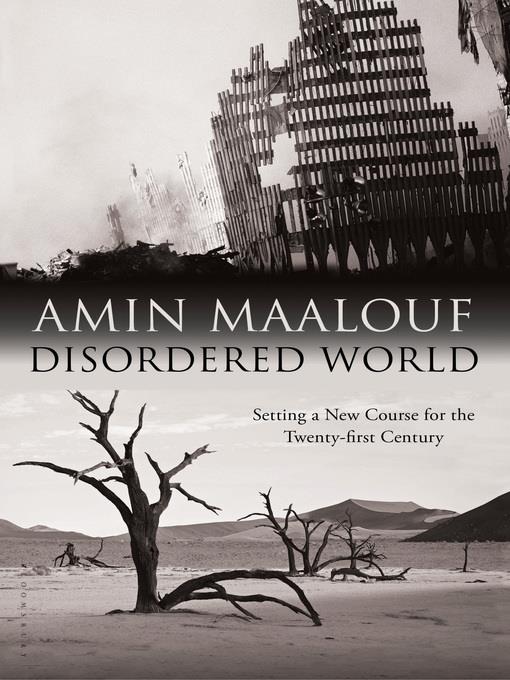
Disordered World
Setting a New Course for the Twenty-first Century
کتاب های مرتبط
- اطلاعات
- نقد و بررسی
- دیدگاه کاربران
نقد و بررسی

August 1, 2011
A Lebanese Christian now living in Paris, Maalouf (The Rock of Tanios) writes, "We have embarked on a new century without a compass," and his polemic breezes over a grab bag of topics, from the idea of political legitimacy to Nasser, the catastrophe of the Six-Day War to the wars in Iraq and Afghanistan, immigration to climate change, arguing in every sphere for tolerance, respect for diversity, and democratic values. Focusing most intently on the Arab and Muslim world (the book, published originally in France in 2009, lacks any discussion of the revolutions now underway in the Arab world) and on how identity has replaced ideology in fueling conflictâand its devastating consequencesâMaalouf does not reach the poetic or philosophic heights of his previous works, though his signature perspective, at once particular and universal, at home in an adopted land and blurring the boundaries between the Self and the Other, shines through. It makes for a startlingly lyrical take on geopolitics: "my approach will rather be that of a nightwatchman in a garden in the small hours after a storm when another more violent storm looms on the horizon."

August 15, 2011
From a distinguished journalist and award-winning novelist, an extended essay with an urgent warning: The world is on the brink of disaster, and humanity must act now to avert it.
Maalouf (Origins: A Memoir, 2008, etc.), a Lebanese Christian living in Paris, looks at the tensions between the Western world and the Arab world from a unique perspective, and what he sees is more than a clash of civilizations. Both, he writes, have reached their limits and are morally bankrupt. Now is the time for human beings to build a common civilization that respects and benefits from cultural diversity; not to do so, he warns, means that we will "descend together into a common barbarity." In chapters aptly titled "Hollow Victories" and "Lost Legitimacy," he writes knowledgeably of the history of relations between the Arab world and the West. In his third chapter, "Imaginary Certainties," Maalouf explores the relationship between politics and religion and between countries and their immigrant populations, and he gives his arguments for taking collective action now to deal with the grave threat of global warming. He presents two visions of the world's future: one in which humanity is divided into tribes that detest one another but share a bland global culture, and another in which humanity is united around common values but continues to develop rich, diverse expressions of culture. Doing nothing leads to the first; to achieve the second requires making what he calls a step-change. Maalouf describes himself as in a state of worried anticipation, but with a measure of hope. He gives four reasons for his hopefulness about humanity's ability to ward off the decline: the increasing pace of scientific progress, the continuing emergence of populous nations from poverty, the example of cooperation shown by the European Union, and the election of Barack Obama, which he sees as an indication of the reawakening of a great nation.
Eloquent and full of passion.
(COPYRIGHT (2011) KIRKUS REVIEWS/NIELSEN BUSINESS MEDIA, INC. ALL RIGHTS RESERVED.)

























دیدگاه کاربران